Pre-Conference Presenters' Biographies
Lisa Aponte-Soto
 Dr. Lisa Aponte-Soto serves as Associate Director of Community Engaged Research for the University of Illinois at Chicago Mile Square Health Center (MSHC), a network of 13 Federally Qualified Health Centers providing comprehensive, high quality health services through the continuum of care. In this capacity, Dr. Aponte-Soto coordinates a portfolio of community-based research projects, oversees the MSHC patient screening and navigation programs, and conducts evidenced-based program, process, and outcomes evaluation to monitor progress, mitigate issues on an ongoing timely basis, and ensure continuous improvement.
Dr. Lisa Aponte-Soto serves as Associate Director of Community Engaged Research for the University of Illinois at Chicago Mile Square Health Center (MSHC), a network of 13 Federally Qualified Health Centers providing comprehensive, high quality health services through the continuum of care. In this capacity, Dr. Aponte-Soto coordinates a portfolio of community-based research projects, oversees the MSHC patient screening and navigation programs, and conducts evidenced-based program, process, and outcomes evaluation to monitor progress, mitigate issues on an ongoing timely basis, and ensure continuous improvement.
Formerly, Dr. Aponte-Soto served as National Program Deputy Director of New Connections, a national program of the Robert Wood Johnson Foundation (RWJF) at Equal Measure. Additionally, she has over 20 years of experience working in academia, social services, and health care settings, conducting administrative operations, program management, grants management, research, and evaluation. Dr. Aponte-Soto has extensive experience working with and for diverse communities in conducting culturally responsive research, evaluation, and programming. Her research and evaluation expertise include addressing health inequities, college access, mentoring, and career development.
Dr. Aponte-Soto has been an active member of the AEA community since 2009. She is a GEDI from the sixth cohort (Evolution). She has served as programming chair for the Multiethnic Issues in Evaluation TIG (2013-2016) and a reviewer for the Health Evaluation TIG (2010-present). Dr. Aponte-Soto is a founding member and chairperson of the Latinx Responsive Evaluation Discourse (LA RED) TIG (2014-Present). She also currently serves on the AEA Task Force on Membership Engagement, Diversity and Leadership Development and the AEA Guiding Principles Task Force.
Dr. Aponte-Soto holds a PhD in community health sciences from the University of Illinois at Chicago, School of Public Health. She earned an MHA in health policy and administration from Governors State University as well as a BS and BA from Loyola University Chicago.
Nicole Bowman
 Dr. Nicole Bowman is the president and founder of the nationally award-winning Bowman Performance Consulting (BPC) in Shawano, Wisconsin. Dr. Bowman earned her PhD in Educational Leadership & Policy Analysis at the University of Wisconsin-Madison (UW-Madison). Her dissertation is recognized as the nation’s first multi-jurisdictional educational policy study in the country to systemically examine how Tribal and non-Tribal educational policy is developed and implemented as public and Tribal governments intersect to educate Indigenous students attending K-12 public schools. Through her work at BPC and UW-Madison, she provides culturally responsive evaluation, research, and policy subject matter expertise where Tribal and non-Tribal governments and organizations collaborate. These projects and initiatives work towards improving the health, economy, education, justice, social, cultural, and human service outcomes for Indigenous populations in reservation, rural, urban, and international community contexts.
Dr. Nicole Bowman is the president and founder of the nationally award-winning Bowman Performance Consulting (BPC) in Shawano, Wisconsin. Dr. Bowman earned her PhD in Educational Leadership & Policy Analysis at the University of Wisconsin-Madison (UW-Madison). Her dissertation is recognized as the nation’s first multi-jurisdictional educational policy study in the country to systemically examine how Tribal and non-Tribal educational policy is developed and implemented as public and Tribal governments intersect to educate Indigenous students attending K-12 public schools. Through her work at BPC and UW-Madison, she provides culturally responsive evaluation, research, and policy subject matter expertise where Tribal and non-Tribal governments and organizations collaborate. These projects and initiatives work towards improving the health, economy, education, justice, social, cultural, and human service outcomes for Indigenous populations in reservation, rural, urban, and international community contexts.
Fiona Cram
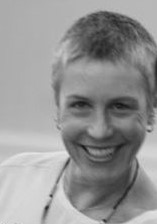 Fiona has a PhD in social and developmental psychology from the University of Otago. She has lectured in Social Psychology and has also been a Senior Research Fellow within IRI (the International Research Institute of Māori and Indigenous Education), at the University of Auckland. In the middle of 2003 Fiona established Katoa Ltd.
Fiona has a PhD in social and developmental psychology from the University of Otago. She has lectured in Social Psychology and has also been a Senior Research Fellow within IRI (the International Research Institute of Māori and Indigenous Education), at the University of Auckland. In the middle of 2003 Fiona established Katoa Ltd.
Fiona’s research interests are wide-ranging including Māori health, justice, and education. The over-riding theme of Fiona's work is Kaupapa Māori (by Māori, for Māori).
Fiona is Editor-in-Chief of the Aotearoa New Zealand Evaluation Association (ANZEA) new evaluation journal, Evaluation Matters - He Take Tō Te Aromatawai, published by the NZCER.
Christopher Dunbar
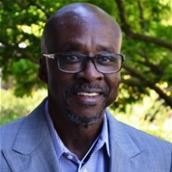 Christopher Dunbar, Ph.D., Professor, University of Illinois, currently works in the Department of Education Policy, Organization and Leadership (EPOL). Dr. Dunbar was a lead consultant in the development of the Template for Analyzing Programs through a Culturally Responsive and Racial Equity Lens. His research interests include alternative education for students who have been unable to matriculate through traditional public schools, and the intersection between school choice and disruptive students. Prior to joining the University of Illinois, he was also professor of K-12 educational administration and the coordinator of the urban education specialization in the College of Education at Michigan State University. He brings a strong background in education leadership that dovetails with our new undergraduate program in learning and education science, and enhances our increasing partnerships with local school communities.”
Christopher Dunbar, Ph.D., Professor, University of Illinois, currently works in the Department of Education Policy, Organization and Leadership (EPOL). Dr. Dunbar was a lead consultant in the development of the Template for Analyzing Programs through a Culturally Responsive and Racial Equity Lens. His research interests include alternative education for students who have been unable to matriculate through traditional public schools, and the intersection between school choice and disruptive students. Prior to joining the University of Illinois, he was also professor of K-12 educational administration and the coordinator of the urban education specialization in the College of Education at Michigan State University. He brings a strong background in education leadership that dovetails with our new undergraduate program in learning and education science, and enhances our increasing partnerships with local school communities.”
Paul Elam
 Paul Elam, Ph.D., President of PPA, is a skilled researcher with expertise in justice issues. He is a collaborative leader who brings an abiding commitment to diversity, inclusion, and equity to his public policy work. Dr. Elam has a wealth of knowledge and experience measuring racial and ethnic discrimination and believes that sound public policy analysis should include an examination of whether all people are being treated fairly and equitably. Dr. Elam directed a state-wide evaluation of the W.K. Kellogg Foundation Michigan Team’s investments and used the Template for Analyzing Programs through a Culturally Responsive and Racial Equity Lens as part of the evaluation design.
Paul Elam, Ph.D., President of PPA, is a skilled researcher with expertise in justice issues. He is a collaborative leader who brings an abiding commitment to diversity, inclusion, and equity to his public policy work. Dr. Elam has a wealth of knowledge and experience measuring racial and ethnic discrimination and believes that sound public policy analysis should include an examination of whether all people are being treated fairly and equitably. Dr. Elam directed a state-wide evaluation of the W.K. Kellogg Foundation Michigan Team’s investments and used the Template for Analyzing Programs through a Culturally Responsive and Racial Equity Lens as part of the evaluation design.
Dr. Elam recently began assisting the Annie E. Casey Foundation with the Expanding the Bench Initiative. This initiative aims to improve evaluation science and social innovation by increasing diversity in the field of research and evaluation. Dr. Elam’s work will focus on evaluators from historically underrepresented groups with evaluation expertise in the areas of child welfare and juvenile justice. Dr. Elam is also a certified facilitator for the California Brief Multicultural Competence Scale (CMBCS) Multicultural Training Program.
Olatokunbo S. Fashola
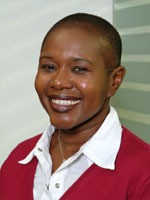 Olatokunbo S. Fashola, Ph.D., is an Adjunct Research Scientist at the Johns Hopkins University and Principal Research Scientist and Vice President, Mathematics Education Research Associates, MERA. She received her Ph.D. in 1995 from the University of California, Santa Barbara.
Olatokunbo S. Fashola, Ph.D., is an Adjunct Research Scientist at the Johns Hopkins University and Principal Research Scientist and Vice President, Mathematics Education Research Associates, MERA. She received her Ph.D. in 1995 from the University of California, Santa Barbara.
Her research interests include reading, after-school programs, language development, emergent literacy, program evaluation, educational policy issues, problem solving, school-wide reform, and bilingual education. She has authored and co-authored numerous articles, chapters, and reports on these topics, including Show Me the Evidence! Proven and Promising Programs for America's Schools, Review of Extended-Day and After-School Programs and their Effectiveness, Building Effective After-School Programs, and Effective Programs for Latino Students.
Rodney Hopson
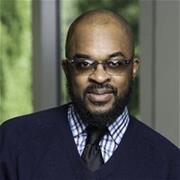 Rodney K. Hopson is Professor, Division of Educational Psychology, Research Methods, and Education Policy, College of Education and Human Development, George Mason University. Previously, he served as Professor, Department of Educational Foundations and Leadership in the School of Education, and teaching faculty member in the Center for Interpretive and Qualitative Research and Honors College in the School of Liberal Arts, Duquesne University. He received his Ph.D. from the Curry School of Education, University of Virginia and has done post-doctoral/sabbatical studies in the Faculty of Education, University of Namibia, the Johns Hopkins Bloomberg School of Public Health and Centre of African Studies, Cambridge University.
Rodney K. Hopson is Professor, Division of Educational Psychology, Research Methods, and Education Policy, College of Education and Human Development, George Mason University. Previously, he served as Professor, Department of Educational Foundations and Leadership in the School of Education, and teaching faculty member in the Center for Interpretive and Qualitative Research and Honors College in the School of Liberal Arts, Duquesne University. He received his Ph.D. from the Curry School of Education, University of Virginia and has done post-doctoral/sabbatical studies in the Faculty of Education, University of Namibia, the Johns Hopkins Bloomberg School of Public Health and Centre of African Studies, Cambridge University.
Hopson’s research interests lie in social politics and policies, foundations of education, sociolinguistics, ethnography, and evaluation. Relative to his research interests, Hopson raises questions that 1) analyze and address the differential impact of education and schooling on marginalized and underrepresented groups in diverse global nation states and 2) seek solutions to social and educational conditions in the form of alternative paradigms, epistemologies, and methods for the way the oppressed and marginalized succeed and thrive despite circumstances and opportunities that suggest otherwise.
LaShaune Johnson
 LaShaune Johnson, Ph.D., Assistant Professor, Creighton University, is an experienced researcher of online learning among pre-health professional students, breast cancer disparities, adult and adolescent obesity, and pediatric health literacy among immigrant/refugee populations. She is faculty in the Master of Public Health program, and in the Master of Medical Anthropology program. She is currently the co-chair of the Metro African American Breast Cancer Task Force in Omaha, Nebraska, and is the co-director of the “In Search of a Medical Home”, a culturally sensitive, Muslim community-based educator project in Central Missouri, funded by the American Academy of Pediatrics and the Society for Community Research and Action. She is one of the contributors of a recently published textbook, Social Capital and Community Well-Being, which is being used by the Serve Here Connecticut academic debt reduction program. She is also one of the contributors to an upcoming edited volume on Black LGBT health issues.
LaShaune Johnson, Ph.D., Assistant Professor, Creighton University, is an experienced researcher of online learning among pre-health professional students, breast cancer disparities, adult and adolescent obesity, and pediatric health literacy among immigrant/refugee populations. She is faculty in the Master of Public Health program, and in the Master of Medical Anthropology program. She is currently the co-chair of the Metro African American Breast Cancer Task Force in Omaha, Nebraska, and is the co-director of the “In Search of a Medical Home”, a culturally sensitive, Muslim community-based educator project in Central Missouri, funded by the American Academy of Pediatrics and the Society for Community Research and Action. She is one of the contributors of a recently published textbook, Social Capital and Community Well-Being, which is being used by the Serve Here Connecticut academic debt reduction program. She is also one of the contributors to an upcoming edited volume on Black LGBT health issues.
Dr. Johnson has employed novel community-based methods to support Omaha’s Adolescent Health Project developmental evaluation (participatory video) and another method (Photovoice) to investigate health services for obese patients in Connecticut and Nebraska. For the Breast Cancer Task Force, she co-designed a peer educator/advocate program; this program is in its second year and is expanding to add training for patient navigators. She is currently a member of the Building Healthy Futures Evaluation Advisory Board in Omaha. She was a member of the inaugural Annie E. Casey Foundation LEEAD (Leaders in Equitable Evaluation and Diversity) program.
Karen E. Kirkhart
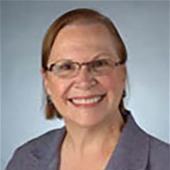 Karen E. Kirkhartholds a Ph.D. in Social Work and Psychology from The University of Michigan and is currently Professor, School of Social Work, David B. Falk College of Sport and Human Dynamics, Syracuse University. She served as President of the American Evaluation Association in 1994 and has held a number of leadership roles in that organization. Dr. Kirkhart’s work on multicultural validity seeks to bring issues of culture competence to the center of the evaluation profession by placing them squarely in the middle of validity theory. Her work on evaluation influence recasts use more broadly in terms of both scope and intention and calls for closer examination of the consequences of evaluators’ work. Dr. Kirkhart’s contributions to the evaluation profession have been recognized by the American Evaluation Association (AEA) with the Paul F. Lazarsfeld Award for Outstanding Contribution to Evaluation Theory and the Robert Ingle Award for Outstanding Services to the AEA. She collaborated with the American Indian Higher Education Consortium (AIHEC) in their development of an Indigenous Evaluation Framework and was a member of the writing team for the AEA Public Statement on Cultural Competence in Evaluation. She has partnered with Rodney Hopson to present a workshop on Strengthening Evaluation through Cultural Relevance and Cultural Competence at the AEA/CDC Summer Institute for the past seven years. Recent and forthcoming publications include a coauthored chapter on Equity-focused evaluation with Rodney K. Hopson and Katrina Bledsoe, an article in New Directions on the centrality of context in evaluation, co-authored with Joan LaFrance and Richard Nichols, and a chapter honoring Scriven’s Key Evaluation Checklist in a forthcoming book edited by Stewart Donaldson.
Karen E. Kirkhartholds a Ph.D. in Social Work and Psychology from The University of Michigan and is currently Professor, School of Social Work, David B. Falk College of Sport and Human Dynamics, Syracuse University. She served as President of the American Evaluation Association in 1994 and has held a number of leadership roles in that organization. Dr. Kirkhart’s work on multicultural validity seeks to bring issues of culture competence to the center of the evaluation profession by placing them squarely in the middle of validity theory. Her work on evaluation influence recasts use more broadly in terms of both scope and intention and calls for closer examination of the consequences of evaluators’ work. Dr. Kirkhart’s contributions to the evaluation profession have been recognized by the American Evaluation Association (AEA) with the Paul F. Lazarsfeld Award for Outstanding Contribution to Evaluation Theory and the Robert Ingle Award for Outstanding Services to the AEA. She collaborated with the American Indian Higher Education Consortium (AIHEC) in their development of an Indigenous Evaluation Framework and was a member of the writing team for the AEA Public Statement on Cultural Competence in Evaluation. She has partnered with Rodney Hopson to present a workshop on Strengthening Evaluation through Cultural Relevance and Cultural Competence at the AEA/CDC Summer Institute for the past seven years. Recent and forthcoming publications include a coauthored chapter on Equity-focused evaluation with Rodney K. Hopson and Katrina Bledsoe, an article in New Directions on the centrality of context in evaluation, co-authored with Joan LaFrance and Richard Nichols, and a chapter honoring Scriven’s Key Evaluation Checklist in a forthcoming book edited by Stewart Donaldson.
Leah C. Neubauer
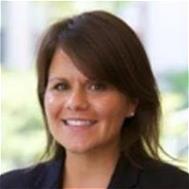 Dr. Leah Christina Neubauer has been working in the field of public health as an educator, evaluator, and researcher for the last sixteen years. She is an Assistant Professor of Preventive Medicine at Northwestern University. Her research focuses on health education and promotion, global health & health disparities. She leads and collaborates on projects that employ mixed-method approaches to develop, implement, evaluate & disseminate translational and culturally responsive research and evaluation. She has delivered over 110 presentations and co-authored publications on education, evaluation, training and research. She is the co-facilitator of AEA’s Local Affiliate Collaborative (LAC), past President of the Chicagoland Evaluation Association (CEA), and member of the AEA Task Force on Diversity, Membership Engagement, and Leadership Development. Leah earned her Ed.D. in Adult, Continuing and Professional Education (cognate in Evaluation) from National Louis University in Chicago, Illinois. She earned her MA in Interdisciplinary Studies (cognate in Organizational and Multicultural Assessment, Development, and Communication) and her BA in Communication Studies, with minors in Business Administration and Health Education from DePaul University in Chicago, Illinois.
Dr. Leah Christina Neubauer has been working in the field of public health as an educator, evaluator, and researcher for the last sixteen years. She is an Assistant Professor of Preventive Medicine at Northwestern University. Her research focuses on health education and promotion, global health & health disparities. She leads and collaborates on projects that employ mixed-method approaches to develop, implement, evaluate & disseminate translational and culturally responsive research and evaluation. She has delivered over 110 presentations and co-authored publications on education, evaluation, training and research. She is the co-facilitator of AEA’s Local Affiliate Collaborative (LAC), past President of the Chicagoland Evaluation Association (CEA), and member of the AEA Task Force on Diversity, Membership Engagement, and Leadership Development. Leah earned her Ed.D. in Adult, Continuing and Professional Education (cognate in Evaluation) from National Louis University in Chicago, Illinois. She earned her MA in Interdisciplinary Studies (cognate in Organizational and Multicultural Assessment, Development, and Communication) and her BA in Communication Studies, with minors in Business Administration and Health Education from DePaul University in Chicago, Illinois.
Donna M. Mertens
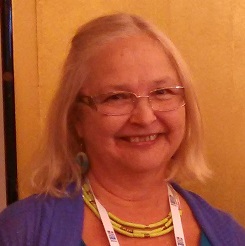 Donna M Mertens is Professor Emeritus at Gallaudet University, a university with a mission to serve Deaf and hard of hearing students. Mertens developed the transformative approach to evaluation as a response to concerns raised by members of marginalized communities about the harm done when evaluations are designed without considering issues of discrimination and social justice. Mertens published Mixed Methods Design in Evaluation (2018) with Sage and Program Evaluation Theory and Practice (2012) with Guilford Press. She served as the editor of the Journal of Mixed Methods Research for 5 years and chaired the Mixed Methods International Research Association’s task force on the future of mixed methods: challenges and opportunities 2015-2016. She is an active evaluator and currently engaged in the enterprise across a variety of settings. She held long-term leadership positions in AEA, including the presidential position 1997-1999 and the Board 2000-2002. She continues to serve as an advisor to AEA’s diversity fellowship program through subsequent years.
Donna M Mertens is Professor Emeritus at Gallaudet University, a university with a mission to serve Deaf and hard of hearing students. Mertens developed the transformative approach to evaluation as a response to concerns raised by members of marginalized communities about the harm done when evaluations are designed without considering issues of discrimination and social justice. Mertens published Mixed Methods Design in Evaluation (2018) with Sage and Program Evaluation Theory and Practice (2012) with Guilford Press. She served as the editor of the Journal of Mixed Methods Research for 5 years and chaired the Mixed Methods International Research Association’s task force on the future of mixed methods: challenges and opportunities 2015-2016. She is an active evaluator and currently engaged in the enterprise across a variety of settings. She held long-term leadership positions in AEA, including the presidential position 1997-1999 and the Board 2000-2002. She continues to serve as an advisor to AEA’s diversity fellowship program through subsequent years.
Willard Walker
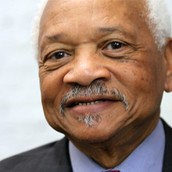 Willard Walker, Affiliated Consultant, has extensive experience working with workforce development, state policy, school-to-work, and race and diversity issues. Mr. Walker has provided training on issues of inclusion, equity, and diversity for the Lansing Board of Water & Light; coordinated an Employer Conference on Workplace Diversity in the Lansing area; and assisted in a crime analysis evaluation for the Michigan Department of Human Services, Bureau of Juvenile Justice. Mr. Walker led the work of developing the Template for Analyzing Programs through a Culturally Responsive and Racial Equity Lens in his work for the W.K. Kellogg Foundation Michigan Team Evaluation.
Willard Walker, Affiliated Consultant, has extensive experience working with workforce development, state policy, school-to-work, and race and diversity issues. Mr. Walker has provided training on issues of inclusion, equity, and diversity for the Lansing Board of Water & Light; coordinated an Employer Conference on Workplace Diversity in the Lansing area; and assisted in a crime analysis evaluation for the Michigan Department of Human Services, Bureau of Juvenile Justice. Mr. Walker led the work of developing the Template for Analyzing Programs through a Culturally Responsive and Racial Equity Lens in his work for the W.K. Kellogg Foundation Michigan Team Evaluation.
He has worked with clients to improve recruitment and retention of African-American teachers, including development of a coordinated recruitment planning process for urban districts. He conducted research to address the plight of young males of color in a project initiated through the Joint Center for Political and Economic Studies.
MISSION
GOALS
SERVICES